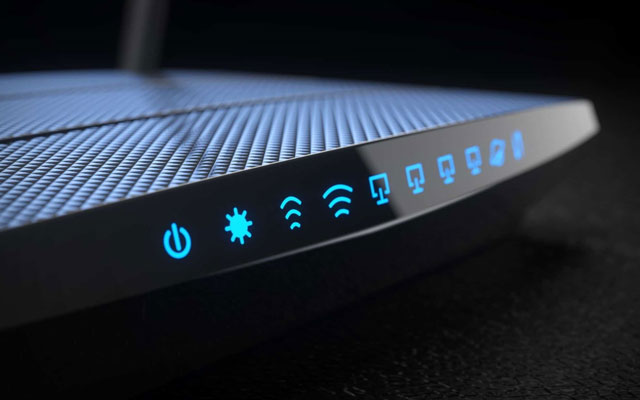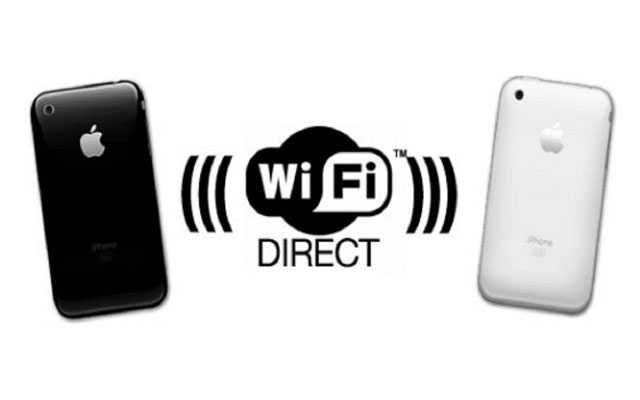What is GHz WiFi? Difference between 2.4 GHz vs. 5 GHz [Detailed]
Today, wireless devices are increasingly popular, especially WiFi networks. When installing a WiFi network in homes or businesses, you must have heard about 2.4GHz or 5GHz WiFi.
So what is GHz WiFi? What is the frequency band? Find out now!
.jpg) GHz WiFi explained
GHz WiFi explained
What is GHz?
A gigahertz (GHz) is a unit of frequency that is equivalent to one billion hertz. It is frequently used to measure electromagnetic (EM) frequencies, alternating current, and computer processing speed.
In fact, the hertz (Hz), or one cycle per second, is the fundamental unit of frequency. Additional widely used units include kHz, MHz, and GHz, which are multiples of Hz that adhere to normal SI prefix conventions. See the table below for more details:
|
Symbol |
Name |
Value |
|
GHz |
gigahertz |
10 9 Hz (1 billion Hz) |
|
MHz |
megahertz |
10 6 Hz (1 million Hz) |
|
kHz |
kilohertz |
103 Hz (1 thousand Hz) |
|
Hz |
hertz |
1 Hz |
2.4 GHz vs 5GHz WiFi
What is 2.4 GHz and 5GHz WiFi? WiFi 2.4 GHz and 5 GHz are both bands, part of the WiFi network, like different broadcast channels of television but broadcast the same program.
Depending on the circumstances, either option will maximize your experience, however both will work.
.jpg)
2.4 GHz vs. 5 GHz WiFi
2.4 GHz WiFi
2.4 GHz is the gold standard of radio frequencies, which is used by a lot of electronics, such as most of your equipment, baby monitors, garage door openers, microwaves, etc.
The frequency you use depends on your Internet speed as well. Only 450–600 Mbps can be supported by 2.4 GHz WiFi. Even while it's more than fast enough for the majority of homes, it won't work at all for those that utilize 1 Gig fiber Internet.
Additionally, you won't need to search for a 2.4 GHz router. This WiFi band is supported by all the best Internet routers, which is why cordless phones and Bluetooth devices are so common there.
.jpg)
2.4 GHz WiFi
5 GHz WiFi
In general, 5 GHz WiFi can offer up to 1,300 Mbps of speed. Any Internet package you have should be sufficient because that is faster than 1 gig. Although this frequency is less crowded, it can't travel far.
A 5 GHz router is rather popular; because it can support 2.4 GHz as well, it is referred to as a dual-band device.
Related:
2.4 or 5GHz is suitable for you?
It is impossible to say exactly what WiFi is better 2.4 or 5 because each has its own characteristics.
When to use 2.4 GHz
We advise using 2.4 GHz WiFi if distance is more important to you than speed. For instance, if your desk or living room—two places where you typically use the Internet—are the only places you can connect your router.
For people who live alone and don't use many gadgets or download a lot of data, a 2.4 GHz connection could also be suitable.
.jpg)
Is 2.4 GHz or 5 GHz WiFi better for you?
When to use 5 GHz
When gaming, streaming in 4K, or doing anything else requiring a large quantity of bandwidth, a 5 GHz router performs better.
You could also have more room if you live in an apartment building where several gadgets will be vying for the 2.4 GHz band.
How to change frequency settings?
After deciding whether 2.4 GHz or 5 GHz is the right frequency for your requirements, you must actually configure your router.
First, confirm that your router is dual-band, or capable of using either frequency. If it is outdated and only supports 2.4 GHz, you won't be able to adjust it.
.jpg)
How to set WiFi frequency?
In case your equipment is dual-band, you may adjust the frequency by using your computer to access the router's settings. Choose your preferred channel and frequency, then start browsing.
Conclusion
The article helped you better understand what is GHz WiFi. Hope you will have a smoother and more comfortable experience when using the network with this useful information.






0 Comments
Leave a Comment
Your email address will not be published. Required fields are marked *